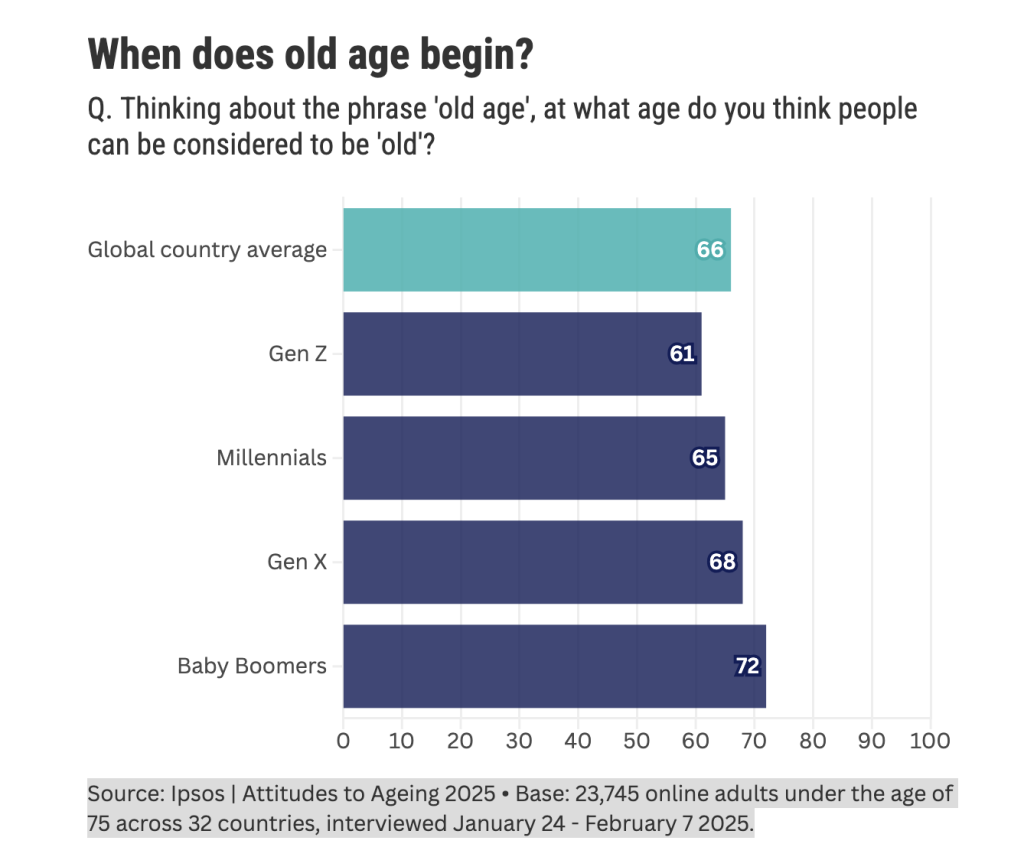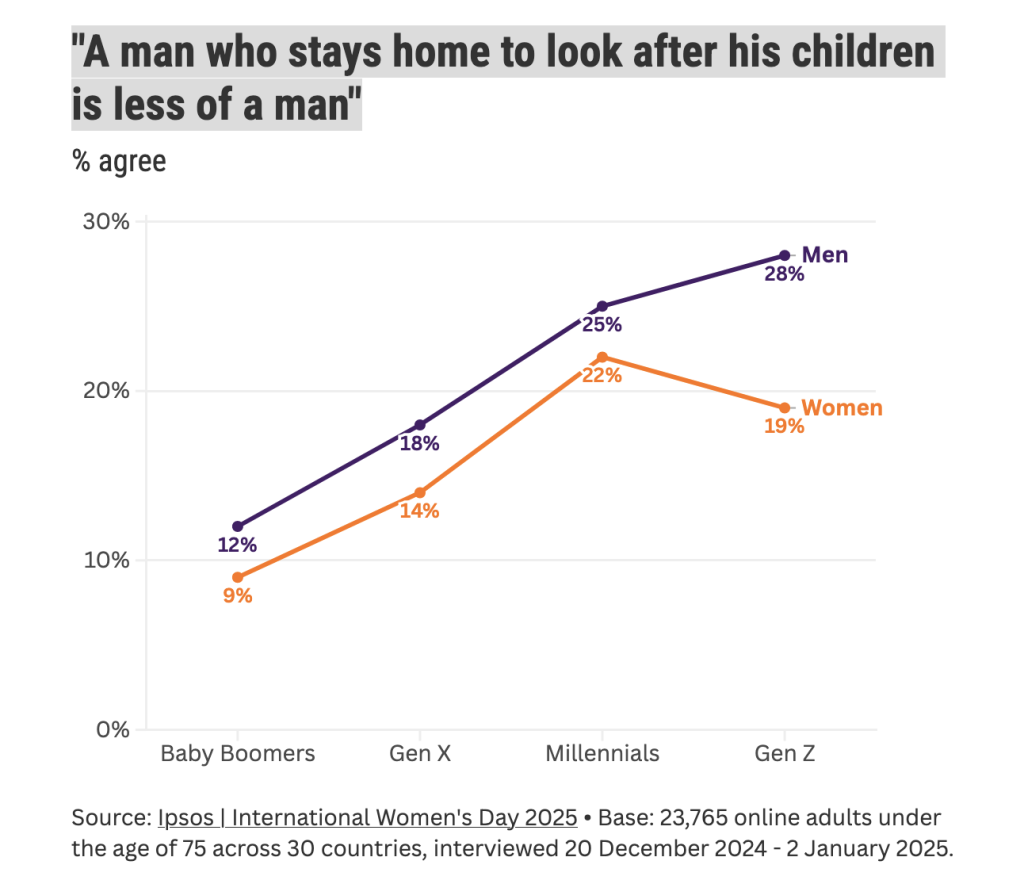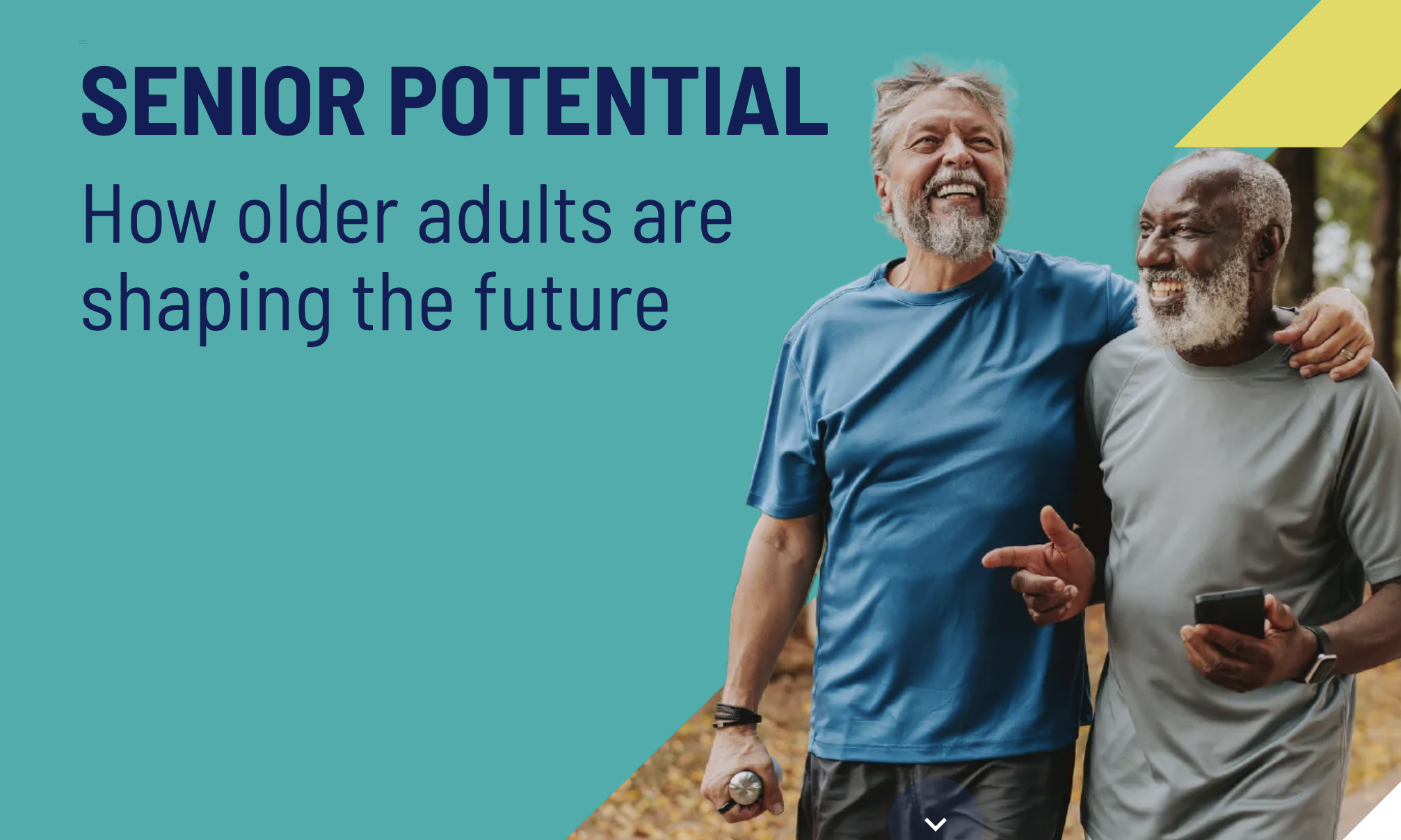60 to 85 years old = 25 years!… of very different realities and aspirations.
What can we learn by studying this new generation of older adults?
Ipsos has recently published its 3rd edition of its Generations Report. I’m covering key learnings from this year’s edition in a series of articles.
Today, let’s focus on the older generation, often called Seniors, Baby Boomers or Perennials
PERCEPTION OF AGE VS REALITY OF AGE:
- According to the United Nations, 25% of the global population will be over 60 in 2050
- But 60 doesn’t mean old for many people. Individuals under 75 interviewed across 32 countries define old age differently depending on their own age:
- “When does old age begin?”
- At 66 on average across 32 countries
- But as early as 61 for Gen Z
- And as late as 72 for Baby Boomers

- Although this is not new, this gap increases with the improved life expectancy and life expectancy in good health
- So when you live until 85 years, do you really spend 25 years = almost a quarter of your life as “old” or as a Senior?
> We absolutely need to redefine our definition of “Seniors” and of what old age means!
3 areas are interesting to consider to understand their mindset:
- Embrace of technology
- Progressive attitudes
- Personal growth
EMBRACE OF TECHNOLOGY:
Forget the stereotype of tech-averse seniors:
- Internet has become part of their daily lives and most them can’t live without it
- 5% of those aged 55–74 strongly agree that « technological progress is destroying our lives », compared to 25% of 25-34 year olds.
- Ageing at home as long as possible is driving the development of smart home devices and health monitoring technologies
PROGRESSIVE ATTITUDES:
Younger generations are not necessarily the most progressive ones, contrary to well-received ideas:
- « A man who stays home to look after his children is less of a man »:
- 12% of Men Baby Boomers agree, against 28% of Men Gen Z
- 9% of Women Baby Boomers agree, against 19% of Women Gen Z
- “When it comes to giving women equal rights with men, things have gone far enough in my country »:
- Baby Boomers are 12 % points less likely than Gen Z to agree with that

PERSONAL GROWTH:
- Older people have a keen interest in continuing to try and discover new things
- But only 19% of consumers over 55 feel that new products are designed with their needs in mind
WHAT OPPORTUNITIES FOR BUSINESSES?
- Look beyond stereotypes: adjust messaging to real values & attitudes
Older adults often hold more progressive views on social issues than many younger generations. As their health and therefore their autonomy is staying good for much longer, they remain open to try and discover new things - Don’t call them Seniors: recognize their nuances & various identities
They are a diverse group of individuals that extend beyond a simple “Senior” or “Boomer” label. - Accessibility is key: develop opportunities for empowerment and autonomy through technology
- Lifelong learning:
Older adults are highly motivated by personal growth and are actively seeking opportunities for personal and professional development, in their hobbies or at work. However their interests will not be the same as those of younger generations, hence the need to adapt product & services offers to their needs and centers of interest.

